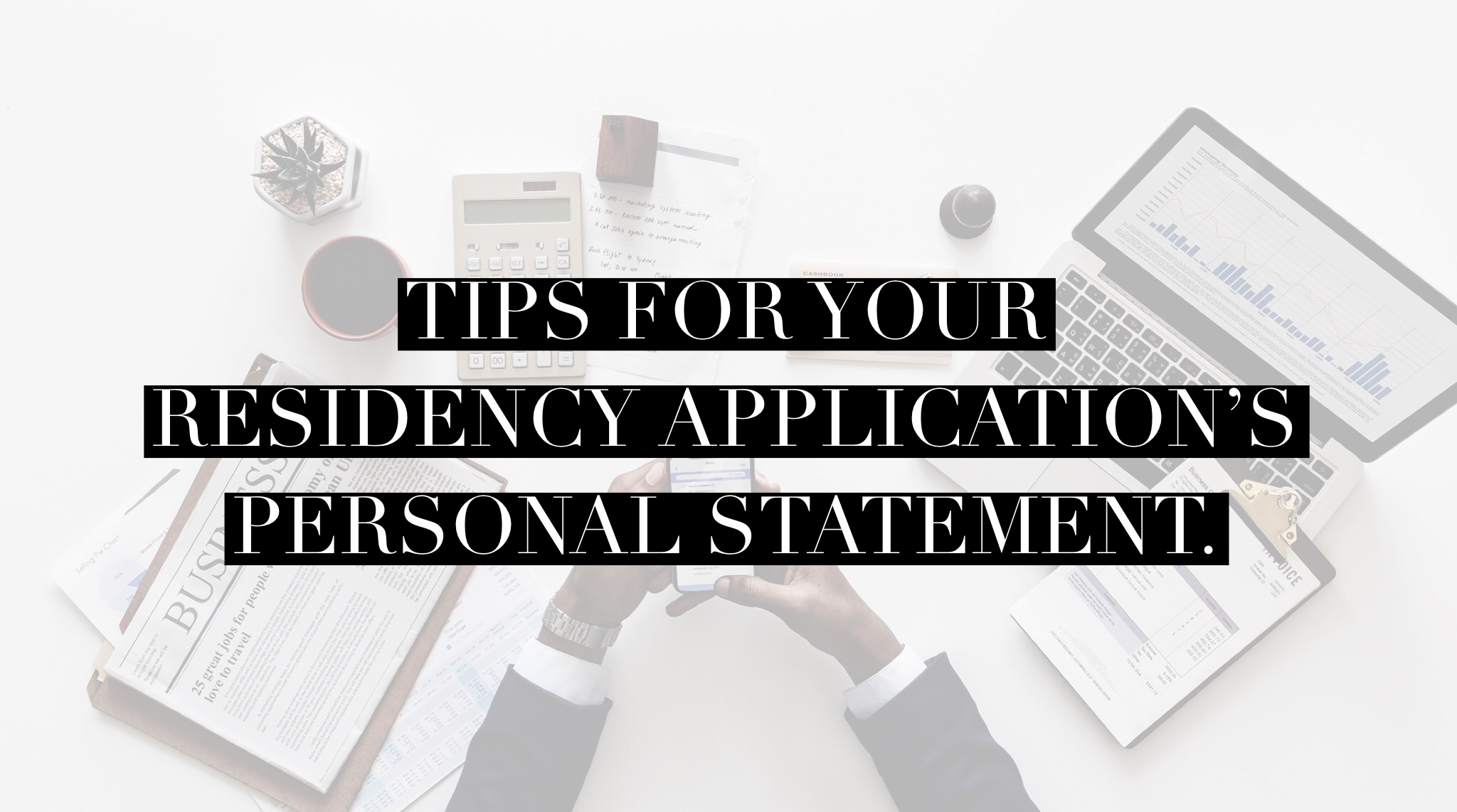How To Write The Perfect Personal Statement.
 The 2014 NRMP program director survey revealed that 78% of program directors cite the personal statement as an important factor in deciding which candidates to interview. The average importance was rated 3.6/5.So, let us begin with the definition of a "personal statement".The word “personal” is defined as: "of, affecting, or belonging to a particular person rather than to anyone else" .
The 2014 NRMP program director survey revealed that 78% of program directors cite the personal statement as an important factor in deciding which candidates to interview. The average importance was rated 3.6/5.So, let us begin with the definition of a "personal statement".The word “personal” is defined as: "of, affecting, or belonging to a particular person rather than to anyone else" .
The personal statement should share the uniqueness of one's purpose.
The word “statement” is defined as: "a definite or clear expression of something in speech or writing" .
The personal statement should use “personal experience” to portray the valuable characteristics of a great resident.
You can do that by telling poignant parts of your story that led to this moment. The authenticity of your personal experience will always stand out from the standard narrative.
The written document should be concise and well defined. Make it a one-page document. Every sentence loaded with meaning.The document should paint a picture of who you are outside of your CV. Remember the CV describes your achievements and the PS (personal statement) tells the story of how they were attained.Tie in experiences with character. Negative traits or failures become valuable if they are shared as lessons. Express humility, self-awareness, and cooperativeness. The paragraphs should flow – the conclusion should bring meaning to the introduction. Demonstrate cohesiveness to keep the reader engaged.The first paragraph could contain an interesting story about yourself. This will enable your readers to get a sense of who you are and whether you’re a good fit for the culture and tone of the program. Your last paragraph should absolutely contain your vision for the future. Use your imagination and creativity.What You Should ABSOLUTELY Include.
- Your WHY. Ensure that your PS answers these questions:
- Why is this specialty important to you? Show the reader your drive, passion, or academic curiosity that led to the choice of your medical specialty. The reader is practicing in your dream role, remember that. You have a great chance at "striking a chord" with them. They are more likely to connect with you on the topic of medicine that they will with anyone else. This is your advantage. Some people write about their experiences as a patient or a caregiver. You can share whatever details you like, just be very mindful about the delivery. It should always portray you in subtle but superior light. Meaning the incident should no longer appear to pose a threat to you at this time.
- How did you find out that this was a specialty that you valued most?Tailor it to your audience. Use the tips in the previous paragraph. If you are applying to more than one specialty, create two separate documents. Again, the reader (who is in your dream specialty) needs to feel connected to you.
- HOW do you stand out?- What have you done that is exceptionally remarkable? Such as military service, medical relief work, space travel, lived in the amazon, survived a desert trek, victim of war etc.- More importantly, how has this experience made you a better student doctor? Personally, growing up in one of the poorest countries in the world has been an advantage. It has taught me resilience, strength through struggle, the role of hard work, dedication and faith. See how I turned a sad story to one of vigor and audacity?
What to Avoid.
- Bragging, arrogance or conceitedness.Final Points
- Seek professional editing.
- Ask more than one person to proofread for grammatical errors, sentence structure and content etc.
- Ask an attending or resident in that specialty to proofread your document.
VERY IMPORTANT TIP: If you have prior experience with the program, or if you have great interest in training at a particular location consider writing a personalized PS. You can do this for your top 3-5 programs. You may choose to include a line such as “it would be an utmost honor to train at ***** if given an opportunity”. If you grew up in the area, or worked at an affiliate location or have "inside information" of the strengths of the program, include that on there.Contributors: Dr. Yvette Achuo- Egbe (IM PGY 3), Dr. Martha Teke (Surgery PGY-2).
